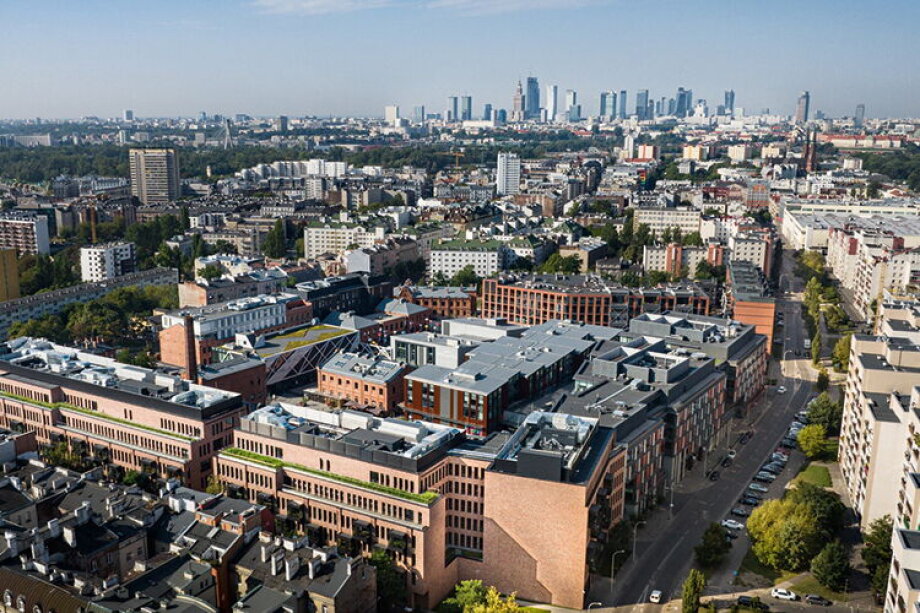A public-private partnership (PPP) is a form of public task implementation based on a long-term agreement determining the division of tasks and risks between a public entity and a private partner. This type of investment management has proved its effectiveness over the years. Nowadays, when the economy is in constant flux, it is necessary to remain flexible and open to diversified solutions, and the public-private partnership represents such an approach.
Warsaw is the main economic and business center of the country. The city is considered one of the largest and most prominent metropolitan areas in Central and Eastern Europe, boasting enormous investment potential.
As reflected in ratings, the city is also a reliable and stable partner for long-term investments. Given the high level of investor interest, Warsaw is keen to integrate commercial and public undertakings when implementing PPP projects. For this reason, the outcome of adopting the PPP formula will be an attractive form of collaboration in terms of both projects launched by the city and proposals or ideas for joint initiatives submitted by external partners.
Warsaw’s track record with PPP
Over the past years, Warsaw has primarily focused on implementing concession-type projects. The following three have resulted in contracts being signed.
1. The concession contract for constructing and maintaining more than 1,500 bus shelters was signed in 2014 for a term of 106 months. Capital expenditure amounted to approximately PLN 100 million. The partner's remuneration represents income from the sale of advertising space, but the city also has a share in these profits.
2. In 2019, a public-private partnership agreement was signed for the city's business incubator. The National Chamber of Commerce took on the role of the new operator of the Targowa Creativity Center for ten years. The operator has implemented a substantive program ensuring high support for entrepreneurs and start-ups but also remains open to Praga's residents. The operator runs an incubator for entrepreneurs from the creative industry and offers an acceleration and incubation program targeting lessees and businesses across the creative sector.
3. A contract with Immo Park was signed in March 2020. The private partner is building a four-story car park with 420 parking spaces under Warsaw Uprising Square. All the cavity walls, which are also the external walls of the underground structure, are already in place. The floors for levels 0 and -2 have also been completed. The foundation slab is scheduled to be completed in the near future, followed by all the reinforced concrete structural elements, starting from the foundation slab level up to level 0, by the end of the year. The completion of the construction and finishing works, as well as the commissioning of the car park, is scheduled for the end of 2024. The car park will be built exclusively with funds from the private partner. After the contract expires, the facility's ownership, estimated at approximately PLN 86 million, will be transferred to the city.
Ongoing projects
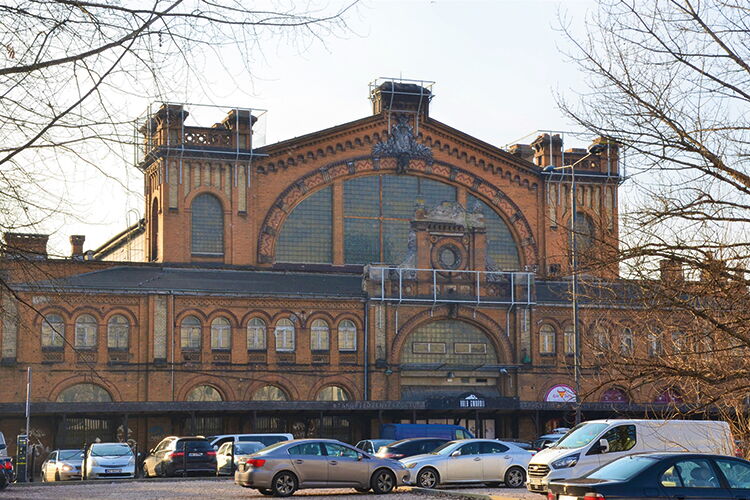
The Gwardia Hall
Choosing a private partner to restore the Gwardia Hall building is about to be finalized. It is now at the bid evaluation stage, and the contract is expected to be signed this autumn.
The project aims to restore a venue popular among Varsovians to its proper condition, allowing city residents to spend time there and enjoy shopping activities safely and comfortably. The historic Gwardia Hall building has been in poor technical condition for years. In addition, it also required constant supervision and the most urgent repairs to keep it in use. The poor state of the facility is why the city authorities have decided to entrust a private partner with the complex restoration and subsequent 30-year facility maintenance in return for profiting from its use. The city foresees no additional subsidies from the budget in this case. At the same time, the private partner will be obliged, as part of the project, to restore the traffic system surrounding the building, together with Wielopole Square, and to build an underground car park under this square. The element of crucial importance in the building's restoration is preserving its original character in terms of its architecture - the renovation will be performed in line with the conservator's guidelines - and its functions, i.e., focusing on small retail and gastronomy. Locals value Gwardia Hall because it brings together local suppliers and artisans and promotes healthy food and sustainable lifestyles.
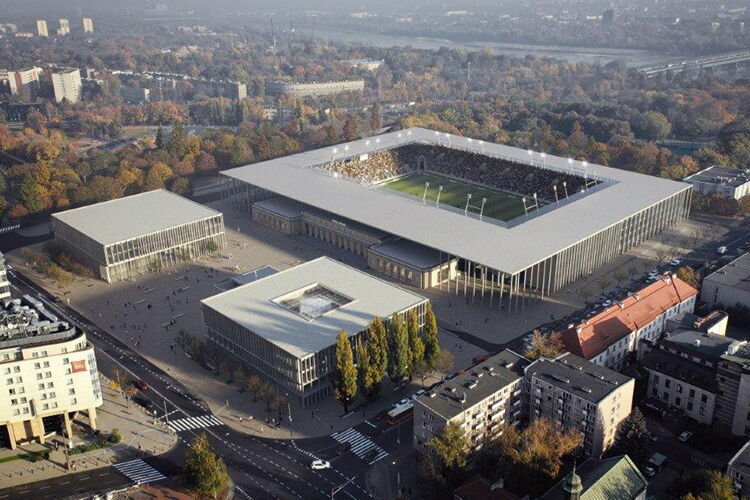
Polonia
The procedure for choosing a private partner to modernize, expand, and develop the complex at ul. Konwiktorska 6 in Warsaw is also at an advanced stage. This project marks another vital move towards restoring the Polonia Center to its former glory. The private partner will draw up the executive documentation, finance, and carry out the investment process, and take responsibility for the technical maintenance of the new infrastructure. The investment plans first involve building a multi-purpose sports hall and Sports Support Center with recreational and sports functions, an office, a gastronomic and retail space, a physiotherapy and rehabilitation center, and underground parking.
It is planned to modernize a part of the stadium in the next project stage, i.e., the three stands: north, south, and east, and the surrounding infrastructure. This modernization will be followed by the renovation of the west stand and its surroundings. The work schedule foresees the contract to be concluded in Q3 2024. The partner will be allowed to proceed with the investment after signing it.
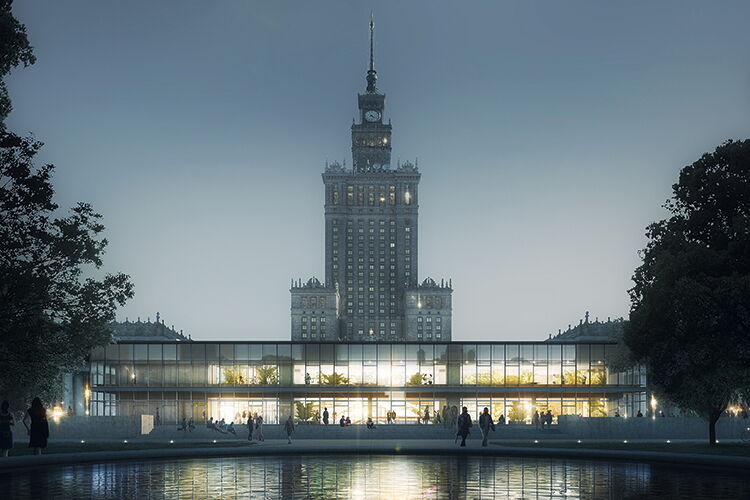
Emilia Pavilion
The city is planning to reconstruct the Emilia furniture pavilion (highly popular in the 1970s and 1980s) in a new location (at the entrance to Świętokrzyski Park on the north side of the Palace of Culture and Science) and with the addition of a new public winter garden. Following the conservation officer's guidelines, the new building should retain its historical features in terms of shape, size, and the glazed façade of the structure covered by the characteristic corrugated roof. The city intends to use the elements remaining after demolishing the original building as much as possible. The private partner's role would involve the development of the facility and its subsequent maintenance in return for reaping the benefits of its commercial functions. Organizing exhibitions amidst the greenery (possibly with showroom functions) will be possible. Furthermore, the private partner will be allowed to benefit from the gastronomic space in the building and the extensive area for sports and gastronomic facilities underground (a significant enlargement of the underground floor is allowed compared to the original design).
The project is now being negotiated with five participants and awaits inclusion in the budget – a tender invitation will be issued as soon as possible.
Kindergartens
The city plans to demolish the Stolbud-Ciechanów kindergarten buildings and replace them with modern, highly energy-efficient kindergartens. The private partner will demolish the existing seven buildings, design and build new kindergartens in their place, develop the premises, and maintain the buildings in good technical condition for 20 years. The remuneration for the private partner will be the accessibility fee paid by the city once the new kindergartens have been put into use, which will be conditional on the fulfillment of quality standards and the possibility of using them in accordance with the contract. The kindergartens will remain public, and the city will continue to be responsible for matters connected to enrolment, the educators, and the curriculum. The project is currently in the negotiation stage, and by the end of the year, the participants will be invited to submit bids. The estimated time of putting the first facility into use is 2026.
Future plans
This year, consultations for two forthcoming projects in Praga Północ, located on the right bank of Warsaw, will be initiated. These new investments will support the area’s development while preserving its distinctive historical ambiance.
The first project involves real estate development and revitalization in the heart of the Praga Północ district and the municipal part of Bazar Różyckiego. Comprising various distinct zones, primarily characterized by residential and industrial structures, the area is bounded by Targowa, Ząbkowska, Brzeska, and Kijowska streets, offering unparalleled transport accessibility.
The second project involves the development of Park Praski for educational, cultural, and gastronomic purposes. This historical park, surrounded by Ratuszowa, Jagiellońska, Al. Solidarności, and Wybrzeże Helskie streets, offers over 18 hectares of lush greenery and proximity to the Municipal Zoological Garden, shopping centers, hospitals, and urban beaches. Park Praski further enjoys excellent transportation connections, and is adjacent to a railway station, metro station, numerous bus and tram lines, and an extensive cycling infrastructure.
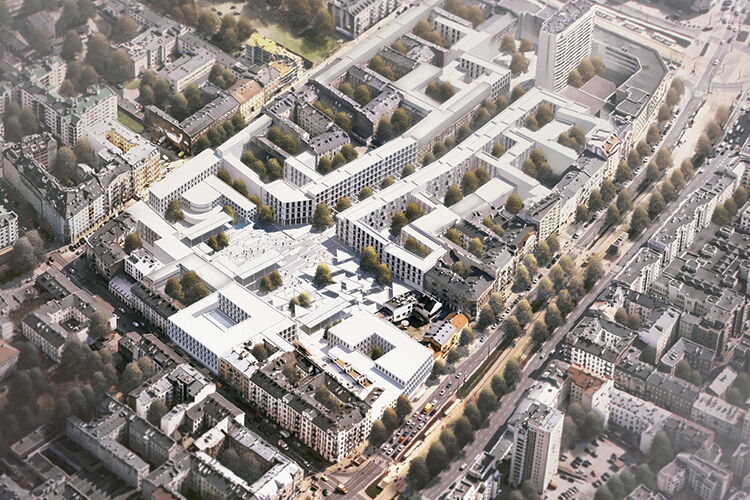
Real estate development in the revitalization area of Praga Północ, along with the municipal part of Bazar Różyckiego
Scope of the project:
• Designing, constructing, and renovating new and existing buildings.
• Creating complementary building infrastructure between the part belonging to the city and the part belonging to the private investor.
• Establishing a special area of the city that is attractive to live in.
• Designing a square at Bazar Różyckiego.
• Designing a road within the quarter functioning as a fire access road to improve the safety of all the quarter's inhabitants, employees, and visitors.
Public aim:
• Renovation of historic tenements, construction of urban apartments, creation of a public space from the urban plan, availability of trade, and a cultural and educational facility.
Commercial aim:
• Construction of apartments for sale or rent, trade, restaurants, and other catering facilities, services, a co-working space, and an underground parking.
Estimated value of the project: approximately €100 million.
Investment stages:
• 2024 – Announcement of the tender in the form of a competitive dialogue to select a private partner.
• 2024 – 2025 – Competitive dialogue.
• 2026 – Contract conclusion with the private partner.
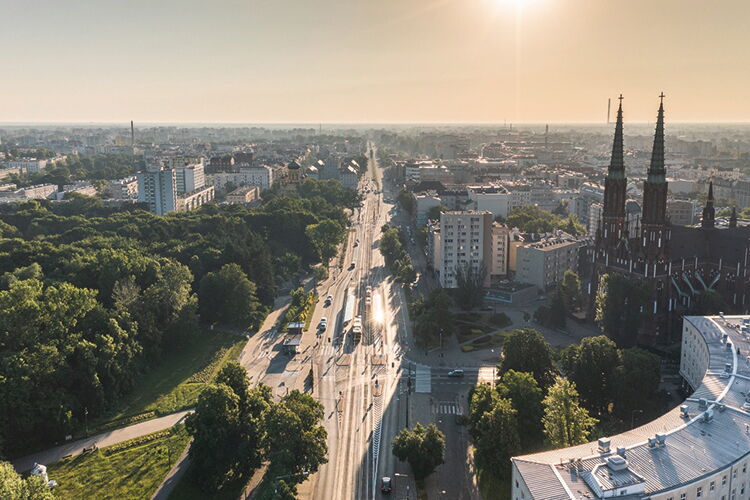
Real estate development in Park Praski
Scope of the project:
• Parceling of the land, demolition of existing facilities, designing, and constructing new buildings.
• Developing the land around the infrastructure created.
Public aim:
• To improve Warsaw’s touristic appeal, upgrade the quality of life of the local community, enrich the offer available for Warsaw’s Zoo and Park Praski’s visitors, make a qualitative change to the public space and supplement it with additional functions such as leisure, exhibitions, education, culture, and gastronomy.
Commercial aim:
• Managing, maintaining, and benefiting from two newly constructed buildings dedicated to commercial purposes, including catering and exhibitions, for a set time period.
Estimated value of the project: approximately €3 million.
Investment stages:
• 2024 – Tender announcement in the form of a competitive dialogue to select a private partner.
• 2024 – 2025 – Competitive dialogue.
• 2026 – Contract conclusion with the private partner.
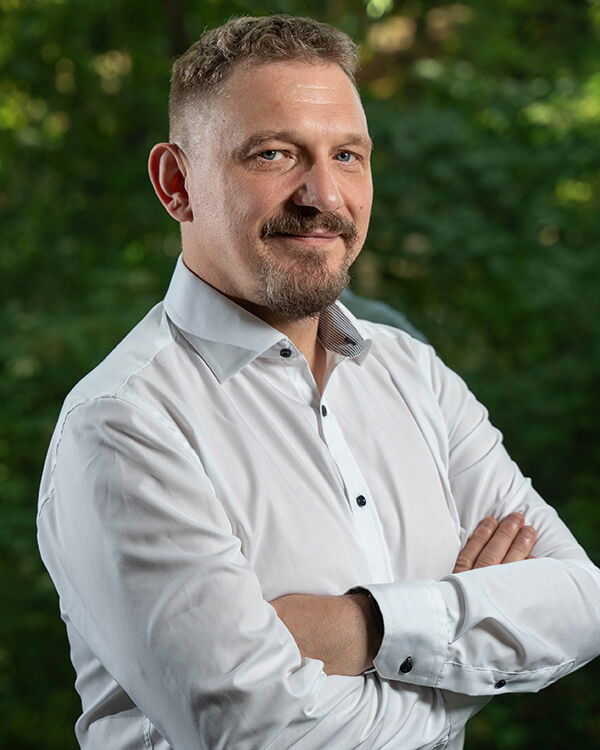
Grzegorz Kaczorowski
Grzegorz Kaczorowski, Director of the Economic Development Office of the City of Warsaw. He graduated from the Faculty of Law and Administration of the University of Gdańsk. He is also an experienced Project Manager. Since 2009, he has worked in the areas associated with Public-Private Partnership (PPP). He has coordinated the preparation and implementation of investments in the PPP and Concessions formula in the majority of the multifunctional development of urban areas. He is the author of publications in the specialized press addressing issues related to PPP. He is a long-time manager and trainer in the field of project management and business law, mainly in the area of large investment projects.
